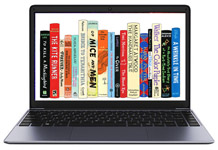
E-JASL: Electronic Journal of Academic and Special Librarianship (1999-2009, Volumes 1-10)
Date of this Version
Winter 2002
Document Type
Article
Citation
Electronic Journal of Academic and Special Librarianship (Winter 2002) 3(1-2). Also available at http://southernlibrarianship.icaap.org/content/v03n01/Barrett_g01.htm.
Abstract
We decided to tell this story of the English-Speaking Librarians' Club in this article with the hope that English-speaking librarians living and visiting elsewhere in the former Soviet Union will look for similar opportunities. To our knowledge, none of the library associations in the other countries of the Commonwealth of Independent States have yet established such a professional unit. For readers in the U.S., we add a word about the name of the group. The word "club" is commonly used in Ukraine for groups that come together around a common agenda but it does not carry the connotations associated with the word "club" in the West. In design and in practice, the Club we write about is an open, professional group that meets during work hours to discuss issues of importance to libraries. In the U.S. it would probably be called a Round Table.
The English-Speaking Librarians' Club is a part of the Ukrainian Library Association (ULA) and operates under the auspices of the ULA and the Information Resource Center (IRC) of the U.S. Embassy in Kyiv. The ULA was itself founded in 1995 to provide Ukrainian librarians a voice in their profession and to promote library services within Ukraine. In 1997, sparked by the persistent requests of Ukrainian librarians for more exposure to the English language, and to information about libraries in the USA, Peace Corp volunteer and librarian Donna Usher, then living in Kyiv, founded the English-Speaking Librarians' Club with the enthusiastic support of ULA President Valentyna Pashkova, Director of the IRC. The group has met regularly for the past four years, survived the transition precipitated by the departure of its founder, and shows every sign of strong leadership and a robust agenda for the future.
On first hearing of it, an English-Speaking Librarians' Club may not sound like a change agent for a new civil society within countries of the former Soviet Union. However, experience in Kyiv suggests otherwise. It won't change the country by itself; however it has broadened the outlooks of those who participate and are comfortable with change. The experience of Club members demonstrates just how innovative people can become when they are exposed to like-minded colleagues, eager and impatient for change in their libraries. The Club provides an outlet that channels this eager energy in useful ways even while the library systems within which many members work evolve at a slower pace. The English-Speaking Librarians' Club of ULA will continue to meet, to welcome new members and guests, and to provide a forum to speak freely in English about the challenges and opportunities librarians share.
Included in
Communication Technology and New Media Commons, Library and Information Science Commons, Slavic Languages and Societies Commons


Comments
Copyright 2002, the authors. Used by permission.